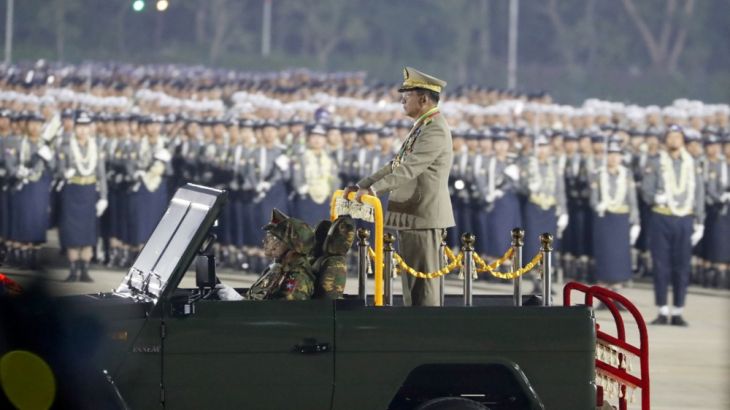Myanmar’s military government has initiated significant steps towards national elections, controversially declaring an end to the state of emergency in select regions, a move widely perceived as consolidating their grip on power under General Min Aung Hlaing.
The announcement, delivered by Zaw Min Tun via voice message, framed the lifting of the emergency as a necessary precursor to facilitating a multiparty democratic election, ostensibly paving the way for a return to civilian rule.
However, this declared step towards normalcy was swiftly counteracted by the imposition of martial law and a state of emergency across nine of the nation’s fourteen regions, citing escalating concerns over armed violence and rebellion, indicating persistent instability.
State broadcaster MRTV confirmed that the upcoming elections are slated for both December and January, a staggered schedule attributed to prevailing security challenges. Furthermore, General Min Aung Hlaing himself will chair an 11-member commission tasked with supervising the entire electoral process.
An order personally signed by Min Aung Hlaing, the architect of the February 2021 coup, formally rescinded the emergency rule that had originally granted him supreme authority. Yet, given his current dual role as acting president and armed forces chief, this move effectively re-entrenches his decisive power over the election’s timing and participant eligibility.
Quoting Min Aung Hlaing in the government-owned Global New Light of Myanmar, he declared, “We have already passed the first chapter,” signaling a strategic progression in the military’s political roadmap, despite ongoing international scrutiny and previous allegations of crimes against humanity.
Analysts largely predict that Min Aung Hlaing will retain significant authority, either as president or armed forces chief, effectively extending his de facto rule. This scenario unfolds against the backdrop of opposition groups firmly committed to boycotting the polls, viewing them as illegitimate.
The military’s initial seizure of power stemmed from unsubstantiated claims of widespread fraud in the 2020 elections, which saw Aung San Suu Kyi’s National League for Democracy achieve a decisive victory. Suu Kyi, a Nobel Peace Prize laureate, remains incarcerated alongside other prominent party leaders, highlighting the enduring political suppression.






Leave a Reply